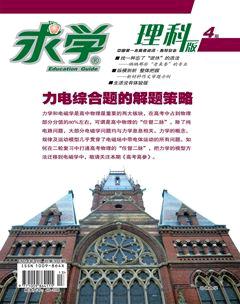高考高频短语剖析(一)
李琼霞
编者按:“get up,get in,get on,get off……这些长相酷似的短语为什么会是一道题的四个选项?难道答案是ABCD?”你是否常常因为这些“N胞胎”而抓狂?专门为大家排忧解难的小编从本期开始邀请资深英语教师为大家详细剖析这类易混短语。走过路过千万不要错过哦!
take高频短语
1. take up表示“占据(时间或空间),拿起(武器),从事,采取”。例如:These big desks take up too much room, so wed better take them away. 这些大桌子占据了太多的空间,我们最好把它们搬走。
2. take effect表示“开始起作用,生效”。
辨析:take effect 和come into effect的区别。
come into effect表示“生效”,主要指的是契约、合同等产生法律效力。take effect表示“起到作用,有效果”,如药剂、主意、措施等起到了预期作用。例如:
(1)The new traffic law will take effect next week. 新的交通法将在下周生效。
(2)These rules shall come into effect as of the date of promulgation. 本细则自发布之日起施行。
3. take place表示“发生、进行”。
辨析:take place 和 happen,occur,come about,break out的区别。
take place表示“发生、举行、举办”,一般指非偶然性事件的“发生”,即这种事件的发生一定有某种原因或事先的安排。happen作“发生、碰巧”解,一般用于偶然或突发性事件。occur作“发生、想到、突然想起”解,其意义与happen类似。come about表示“发生、产生”,多指事情已经发生了,但还不知道为什么,常用于疑问句和否定句。break out意思为“发生、爆发”,常指战争、灾难、疾病、火灾、争吵等的发生,也可以表示突然大声叫喊等。例如:
(1)Great changes have taken place in our hometown during the past ten years. 在过去十年间,我们的家乡发生了巨大的改变。
(2)It occurred to me that I saw him on my way home yesterday. 我突然想起昨天在回家路上见过他。
(3)I happened to see your sister crying on my way to school yesterday. I was in such a hurry that I had no time to ask what had happened to her. 我昨天在去学校的路上偶然碰见你妹妹在哭。我太匆忙了,没有时间问她发生了什么事情。
(4)When the Second World War broke out, Tom was only a newborn infant. 二战爆发的时候,汤姆只是个新生婴儿。
(5)Ill never understand how it came about that you were late three times a week. 我永远都不会明白你怎么会一周迟到三次。
4. take in表示“理解、欺骗、接受”。例如:Some salesmen have taken in the old people and made them buy their poor quality products.一些商贩诱骗老年人买他们那些质量差的产品。
5. take on 表示“雇用,呈现(新面貌等),承担”。例如:The land around the lake takes on a different look. 湖周围的土地呈现出不同的面貌。
高考链接:(2011陕西卷)Some insects take on the color of their surroundings to protect themselves. 有些昆虫可以使自己呈现出与周围环境相同的颜色,以保护自己。
6. take over表示“接管、接收、接任”。例如:After graduation, he took over the company from his father. 毕业后,他接管了父亲的公司。
高考链接:(2013辽宁卷)Briggs will take over as general manager when Mitchell retires. 米切尔退休后,布里格斯将作为总经理接管(公司)。
7. take part in表示“参与、参加”。
辨析:take part in和attend,join in,join,enter for的区别。
take part in表示参加活动并起到积极的作用;attend表示出席会议、仪式等;join in表示参加具体的活动;join表示加入团体组织;enter for表示报名参加。例如:
(1)I will have to attend his funeral next week. 我下周要去参加他的葬礼。
(2)My father joined a revolutionary-organization in 1938. 我父亲在1938年加入了一个革命组织。
(3)We often take part in physical labor. 我们经常参加劳动锻炼。
(4)Why didnt you join in the talk last night?你昨晚为什么不加入我们的谈话?
(5)Before you take the contest, you are to enter for it. 在参加比赛之前,你必须先报名。
put高频短语
1. put aside表示“将……放在一边,保留”。例如:We should put aside our differences and discuss the things we have in common. 我们应该抛开分歧,讨论一下我们的共同点。
2. put away表示“收拾起来,存起来,放好,储蓄”。例如:He puts away some money for his retirement. 他存了一些钱以备退休之用。
高考链接:(2010全国卷II)My mother opened the drawer to put away the knives and spoons. 妈妈打开抽屉,把刀和勺子放到里面。
3. put down表示“记下、放下、镇压、平息”。例如:The uprising was put down with the utmost ferocity. 起义被极端残酷地镇压下去了。
高考链接:(2012全国卷I)Mary is really good at taking notes in class. She can put down almost every word her teacher says. 玛丽很擅长在课堂上做笔记,她能记下老师讲的每个单词。
4. put forward表示“提出,拨快(钟等)”。例如:I tend to accept any idea put forward by experts on TV. 我倾向于接受电视上的专家提出来的任何观点。
5. put off表示“延期、推迟”。
辨析:put off和call off,postpone,cancel,delay的区别。
put off,postpone,delay均有“推迟、延期”之意。put off为口语用词,与postpone同义,但较通俗。postpone为正式用词,语气较强,多指有安排地延期,常指明延期到一定的时间。delay为普通用词,多指因外界原因推迟或耽误,通常表示航班推迟或出货晚了,也可指有意推迟。而call off和cancel表示取消安排或预约,且通常不再作新的安排。例如:
(1)The meeting is put off because of the heavy snow. 因为大雪,会议被推迟了。
(2) Many people put off until tomorrow what they can do today. They always look for excuses to postpone doing something. 很多人把今天能做的事拖到明天,他们总是找借口拖延做事。
(3)The Russian foreign minister yesterday called off/ cancelled his visit to Washington. 俄罗斯外交部长昨天取消了对华盛顿的访问。
(4)The accident delayed the train for two hours. 事故使火车耽搁了两小时。
6. put out表示“扑灭、出版、熄灭、传出、生产、制造”。例如:A big fire broke out last night and soon it was put out. 昨天晚上起了场大火,但很快就被扑灭了。
7. put up表示“举起、张贴、建造、搭起、公布、投宿”。例如:We can put you up for the night since its getting dark. 天黑了,我们可以留你住一晚。
高考链接:(2011辽宁卷)The exam results will be put up on Friday afternoon. 考试结果会在星期五下午得到公布。
(2011浙江卷)He decided that he would drive all the way home instead of putting up at a hotel for the night. 他决定直接开车回家,而不是在旅馆住一晚。
8. put up with 表示“容忍、忍受”。
辨析:put up with和bear,stand的区别。
put up with为口头用语,指“耐心忍受”,含有“宽恕、不计较”之意,一般指容忍较小的事情,具有“宽容、默认、将就某人或某事”的意思。bear表示“忍受、忍耐”,为普通用语,泛指忍受精神上或肉体上不同程度的各种折磨,也可表示某人勇于承受住某种压力或经受住某种考验,多用于否定句和疑问句,常与can,could连用。stand 表示“忍耐”时多用于口语,常用于否定句或疑问句中;若用于肯定句,意为“不屈不挠,经受得起”,暗示某人能经受住各种磨难,具有不屈不挠的精神。例如:
(1)She had to put up with many inconveniences while living in the countryside. 在乡下住时,她不得不忍受很多不便之处。
(2)She couldnt bear to be laughed at. 她不能忍受被人取笑。
(3)He successfully stood the severe test. 他成功地经受住了严峻的考验。

